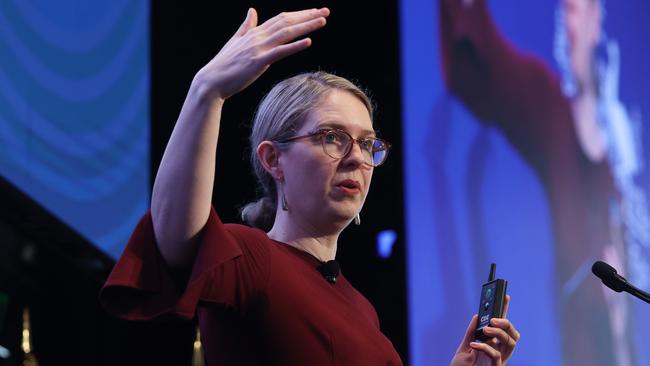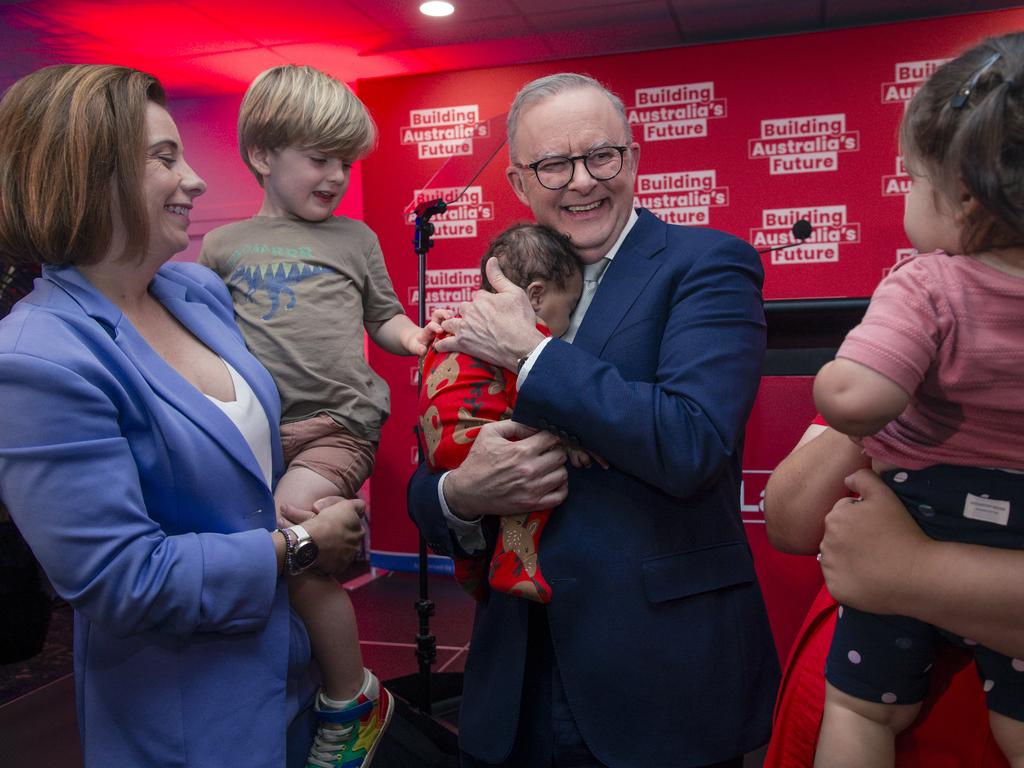$8bn blackhole in cost of activity childcare test leaves economists ‘puzzled’
Anthony Albanese says his changes to the activity test for childcare will only cost $430m, but modelling by independent economic bodies expects it will be much more.

Labor’s estimated cost of abolishing the activity test for three days of childcare has left economists “puzzled” given discrepancies with modelling by the Productivity Commission, raising concerns of a multibillion-dollar budget black hole in the government’s costings.
While estimates in the Productivity Commission’s final report on childcare – handed down just three months ago – put the annual cost of scrapping the activity test at $1.7bn, Labor on Wednesday announced the move would cost taxpayers just $427m over five years.
The Australian understands the government is putting the difference in its costings down to the fact it relied on “more recent administrative data” than the Commission, despite the independent economic advisory body having worked with the education department in compiling its milestone childcare report.
While the Commission predicted scrapping the activity test for three days would see a 14 per cent increase in Child Care Subsidy spending, the government was unable to provide its comparative modelling on the overall rise in CCS and rather pointed to the fact it expected just over 60,000 families not currently accessing care to now do so.
The activity test means that, to access childcare, parents must prove they are working, studying or training. But advocates have for years called for the test to be scrapped because it is a barrier for families, particularly those from low socio-economic backgrounds, to access care.
Economist and UNSW business school professor, Richard Holden, said the difference in the government’s figures on scrapping the test – which are nearly 20 times lower than the Commission’s costings – seemed “fishy”.
“I can’t reconcile that $430m figure,” he said.
“It leaves me puzzled and I mean really? Has the data changed by between 12 and 20 fold? It seems like (the government) are trying doge it.”
Professor Holden said one potential reason for keeping the predicted cost of the activity test so low was to prepare the ground for introducing the $10 a day flat-fee model; a multibillion-dollar idea he expected would be the “centrepiece” of the government’s election pitch.
The Productivity Commission has been vocal in its opposition to introducing a $10 a day flat fee for childcare, which it says would cost about $8bn and benefit primarily high-income families.
In an opinion article published in The Australian on Friday, Productivity Commission chair Danielle Wood and her fellow commissioner Martin Stokie said the sequence and pace of steps taken as part of Labor’s vision for universal childcare were “as important as the steps themselves”.
“While addressing affordability barriers is a priority, improving access and availability is appropriately the initial focus to achieving universal early childhood education and care,” they write.
“A strategic and phased approach to ECEC reform is about avoiding the unintended consequences that bedevil well planned, but poorly implemented reforms.”
In an effort to begin addressing gaps in accessibility and the “childcare deserts” that exist in some areas, Anthony Albanese on Wednesday announced $1bn in funding that would include grants for existing operators to extend their services and direct investment from government to buy and own childcare centres.
“There are children who are missing out and they’re missing out because the market isn’t going to places where it is either unprofitable or it’s just not feasible for them to operate,” Early Childhood Education Minister Anne Aly told Sky News on Thursday.
“And so, the government needs to be able to build services and build centres where the market won’t.”
Labor’s two childcare announcements were widely welcomed by the sector but not backed by the Coalition, which claimed the policies were just “smoke and mirrors” that risked fuelling demand unsustainably.
Opposition early childhood education spokeswoman Angie Bell said the $1bn cash splash and announcement to scrap the activity test represented “a desperate bid for votes” that risked repeating the failures of a similar policy implemented under the Rudd government.
“Last time they promised 260 centres, and they ended up funding only 38 after spending $200 million of taxpayers money,” she said.
“This is not good policy.”
While questions remain over Labor’s costing to abolish the activity test, ANU’s Ben Phillips said it was just as likely that the Productivity Commission had “over-estimated” the fiscal impact of scrapping the activity test.
“I’ve never been convinced by the argument that abolishing the activity test would have that big an impact,” he said.








To join the conversation, please log in. Don't have an account? Register
Join the conversation, you are commenting as Logout